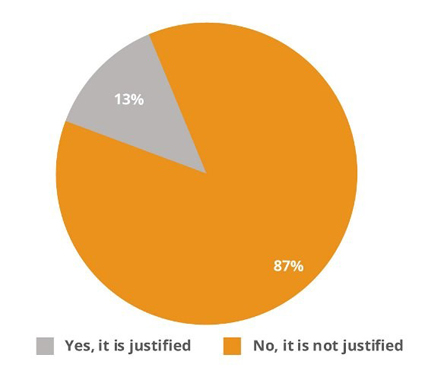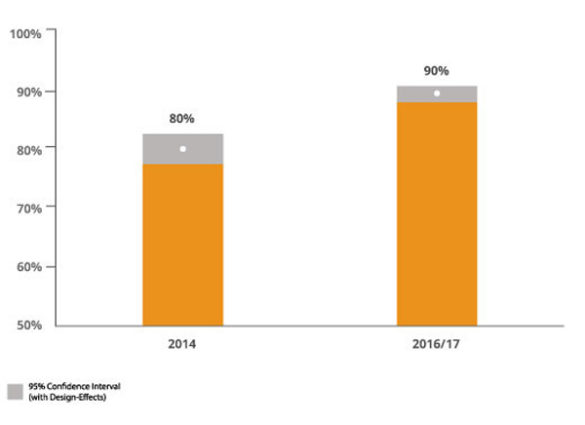Most Venezuelans are against the type of move recently attempted by that nation’s Supreme Court to give President Nicolas Maduro unchallenged power, as the three branches of government there clash over power during challenging economic times.

Eighty-seven percent of those polled by the Latin American Public Opinion Project (LAPOP) said they believe that governing the country while ignoring the legislature can’t be justified, even during periods of crisis. Venezuela’s Supreme Court tried to do just that on March 30, when it moved to strip the National Assembly of its legislative powers. That would have left Maduro with sweeping authority unimpeded by congressional checks and balances.
The Supreme Court backed off on this position after a few days, presumably because of public pressure.
“The move by the Supreme Court to strip the National Assembly of its power comes after months of inter-branch conflict during which the court has repeatedly nullified legislation passed by the National Assembly,” said Mariana Rodríguez, co-author with Elizabeth Zechmeister of the LAPOP study “Government without a Legislature? Venezuelans Oppose the Idea.”
The authors explain that the court justified the March 30 ruling by arguing that the National Assembly did not follow appropriate legal procedures when removing three opposition lawmakers who were under investigation for alleged vote-buying during legislative elections in 2015.
Economic Crisis
Venezuela is in the midst of an economic crisis after enduring four years of recession and high inflation. There are shortages of medicine and basic foods and long lines for basic amenities.
Ninety percent of Venezuelans believe the country’s economy is the worst in recent history. That’s up from 80 percent who answered the question in 2014. According to the authors, such negative evaluations of the country’s economic situation are “likely making the public even more wary of a move to transfer ruling power exclusively to the executive branch.”

Since the 1970s, LAPOP has gathered public opinion data containing political perspectives from citizens of the Americas. The national poll in Venezuela is part of LAPOP’s AmericasBarometer regional survey and was carried out between October 2016 and January 2017, with 1,558 people interviewed. The margin of error is plus or minus 2.5 percent.
The National Assembly is viewed far more positively than Maduro, according to the poll.
“The percentage of Venezuelans with high levels of trust in the legislature jumped from 29 percent to 48 percent following the opposition’s sweeping electoral victory in December 2015, when it gained a majority of congressional seats,” Rodríguez said.
Only 17 percent of Venezuelans said Maduro’s performance was “good” or “very good.” The poll did not include a question about how much voters trust the Supreme Court.
LAPOP, based at Vanderbilt University, develops, implements and analyzes the AmericasBarometer public opinion surveys. LAPOP data and reports are available to interested researchers at the LAPOP website. LAPOP’s AmericasBarometer project covers 34 nations including all of North, Central and South America as well as a significant number of countries in the Caribbean.
Elizabeth Zechmeister is Cornelius Vanderbilt Professor of Political Science and director of LAPOP. Mariana Rodríguez is LAPOP’s program coordinator.